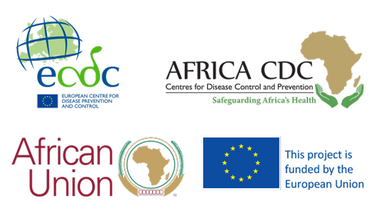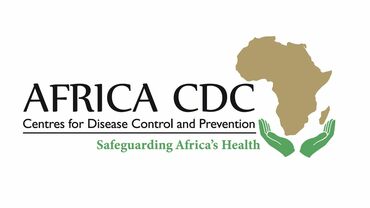Building trust in public health: Imen Haddad on Infodemic Management and Digital Strategies
With funding from the Africa CDC – ECDC Partnership, Imen Haddad recently participated in an ECDC workshop on infodemic management organised under the EU Initiative on Health Security.

Can you briefly introduce yourself and your role at Africa CDC?
My name is Imen Haddad, and I serve as the Senior Social Media and Digital Information Manager at Africa CDC. In this role, my primary focus is to ensure that Africa CDC’s digital communication not only shares accurate health information across the continent, but also actively listens to public conversations, identifies emerging misinformation, and responds quickly and effectively to build trust and close information gaps. My work focuses on leveraging social media and digital platforms to strengthen the connection between public health authorities and the communities we serve, ensuring that timely, credible, on-trend and culturally relevant information reaches every corner of the continent.
What will be the key priorities in your area of work for 2025?
At Africa CDC, my role is driven by a deep commitment to elevating the voices and expertise of African professionals in public health and advocacy. In 2025, my key priorities include amplifying the impact of Member States’ health initiatives and achievements, ensuring that African experts are not only featured but recognised as thought leaders in global health discourse.
Through powerful, community-inspired testimonials and content with mass appeal I aim to highlight stories of resilience and innovation that are often overlooked. By prioritising local solutions and narratives, I aim to inspire a new wave of global recognition and collaboration, where African voices lead the way in shaping a healthier future for the continent and beyond. My work is also deeply personal – driven by the painful losses I experienced during the COVID-19 pandemic, where misinformation and falsehoods took the lives of family and friends. This drives my unwavering commitment to combating harmful health myths and debunking false information, particularly on critical health issues that directly impact our communities.
Infodemic management isn’t a side project – it’s central to saving lives. Understanding people’s fears and beliefs is just as important as tracking case numbers in shaping effective health interventions.
From your perspective, what has been the most significant highlight of the recent two-day workshop on infodemic management?
For me, the biggest highlight was the clear emphasis on social listening as a fundamental pillar of epidemic response. The training went beyond tools and frameworks – it really highlighted how understanding people’s fears and beliefs is just as important as tracking case numbers. The case study from Serbia especially stood out, demonstrating how a multidisciplinary approach, combining public health data with behavioural insights and community partnerships, can turn social listening into a real-time tool for building trust and shaping effective health interventions. It reinforced that infodemic management isn’t a side project – it’s central to saving lives.
How does a strong Africa CDC – ECDC partnership add value to your area of work?
The Africa CDC – ECDC partnership brings invaluable technical expertise, a global perspective, and hands-on experience to our work. As Africa CDC scales up its infodemic management capacity, having a partner like ECDC – with its experience in building multidisciplinary approaches to misinformation, social listening, and behavioural insights – enables us to share knowledge and learn from global best practices.
Beyond technical exchange, this partnership also strengthens our collective voice on the global stage – ensuring that Africa’s experiences and innovations in managing infodemics contribute to shaping global strategies.







